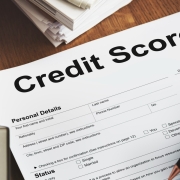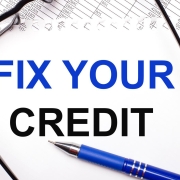What Impacts Your Credit Score?
A credit score reflects a person’s creditworthiness based on several measurable factors, such as payment history, amounts owed, length of credit history, credit mix, and new credit inquiries. Each factor contributes to a person’s overall score, influencing access to loans, interest rates, and terms across financial products. A higher score generally enables access to better loan terms and fewer barriers when obtaining services or credit. Many people who achieve scores above 700 report reduced stress in financial transactions, broader options for credit, and favorable terms on loans, illustrating the practical benefits tied to maintaining a strong credit profile.
Payment History
Payment history heavily influences your credit score. It constitutes 35 percent of your FICO Score. Consistent on-time payments are vital for maintaining a strong credit profile. Late payments, particularly those overdue by more than thirty days, can have a detrimental effect on your score. The degree of this impact is determined by various elements, including the lateness of the payment, the owed amount, and how often late payments have occurred. Accounts that are sent to collections or are subject to foreclosures and bankruptcies also exert a negative influence on credit scores.
Amounts Owed
Credit utilization, which accounts for thirty percent of your FICO Score, is another essential component. This metric evaluates both the total debt across all credit accounts and the credit utilization ratio, which assesses how much of the available credit one is using. Lenders typically advise maintaining this ratio below thirty percent to demonstrate responsible credit use. Excessive credit utilization suggests a higher likelihood of financial overextension and default risk.
Length of Credit History
The length of one’s credit history is responsible for fifteen percent of the FICO Score calculation. It examines the duration of one’s oldest credit account, newest credit account, and the average age of all accounts. A longer credit history is advantageous as it reflects prolonged credit management experience. Users on Reddit and Quora have shared that maintaining long-standing accounts can provide stability in credit scoring, leading to better potential loan terms.
Credit Mix
Credit mix encompasses a variety of credit accounts, including credit cards, installment loans, student loans, and mortgages, forming ten percent of one’s FICO score. Having different credit types suggests a capacity to manage multiple forms of credit effectively. Discussions online reveal that a well-managed credit mix can facilitate higher credit limits and favorable financial product offers.
New Credit
This aspect makes up ten percent of the FICO score evaluation. Opening new credit accounts, especially multiple inquiries in a brief period, might signal credit risk, resulting in a potential score reduction. Hard inquiries conducted by lenders upon application for new credit might lower scores temporarily. However, if managed properly, such as when rate shopping within a short duration, these inquiries are counted more favorably.
Other Key Considerations
The total balance across all accounts is not designated as a separate factor but remains in enhancing credit scores. Elevating balances relative to credit limits detracts from creditworthiness. Hard inquiries can bring about temporary point deductions, with effects typically dissipating in a few months if sound credit habits are perpetuated. Maintaining an optimal number of credit account types is advised to present a balanced credit profile to potential lenders.
Factors That Do Not Affect Credit Scores
Checking personal credit scores, which constitutes a soft pull, exerts no impact on credit scores. Rent and utility payments generally do not appear on credit reports, with exceptions occurring when reported as late payments to agencies. Factors such as income and bank account balances do not interplay with credit scores. Age does not serve as a credit scoring determinant, although it indirectly relates to the length of one’s credit history.
Practical Tips for Improving Credit Scores
Regularly paying bills by their due dates is a straightforward measure to avoid negative score implications. Keeping credit utilization rates below thirty percent is another proactive approach. Those with long-standing credit accounts are encouraged to retain them rather than close them to sustain longer credit history averages, which bolsters favorable scores. Restricting the frequency of new credit applications precludes detrimental credit score effects, ensuring lenders’ perception of financial stability.
Credit Score Ranges and Models
Credit score ranges inform potential borrowers about their credit standing using FICO Scores varying from 300 to 850. Scores beneath 580 reflect poor credit standing, while scores nearing 670 or higher indicate better credit positioning. While both FICO and VantageScore models exist, payment history and credit utilization are universally acknowledged as primary scoring influences. Various borrowing experiences recounted online corroborate that improving credit scores can unlock access to beneficial financial product terms.
Credit Report Monitoring
Regular record-keeping and the verification of credit reports help safeguard against potential errors that could undeservedly lower credit scores. Consumers are advised to dispute inaccuracies with relevant credit reporting entities. Multiple active credit scores exist subject to different calculated models and data availability, which informs creditworthiness scores. Reviews reveal that high scores afford users advantageous borrowing terms with reduced financial stress.
Impact of Credit Scores on Financial Decisions
Lenders evaluate credit scores as part of borrowing eligibility assessments, determining loan specifics, such as interest rates and terms. Rental and insurance-related evaluations may include credit score appraisals to ascertain financial diligence. Occasionally, some employers utilize credit score information as a part of human resource evaluations, although this practice is less prevalent. Overall, insights from various users explicate that effective credit score management extends financial opportunities through advantageous interest rates and finance options.
Actions That Contribute to Maintaining Good Credit Scores
Cardholders are advised to perform regular self-assessments of credit to preempt any erroneous reporting issues. Notifications and alerts, alongside strategic payment scheduling, benefit users in minimizing the potential for late payments. Rate shopping among loans should remain confined to short intervals to maintain credit stability. Those sharing financial experiences online consistently endorse responsible credit management as a foundation for building and preserving strong credit profiles.




